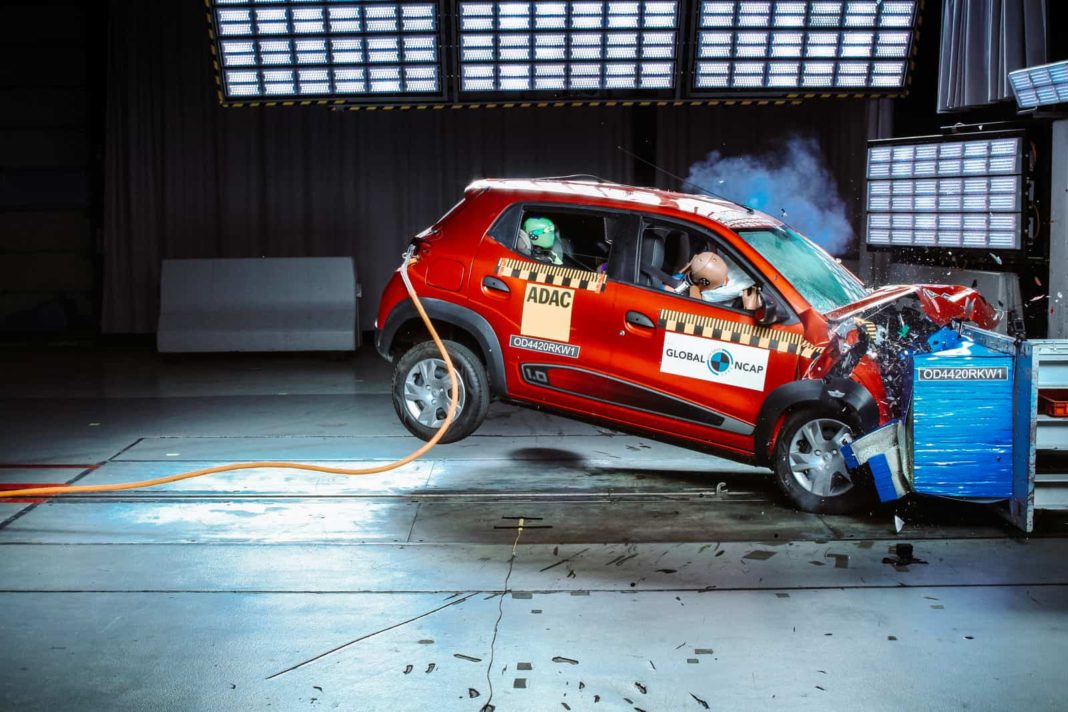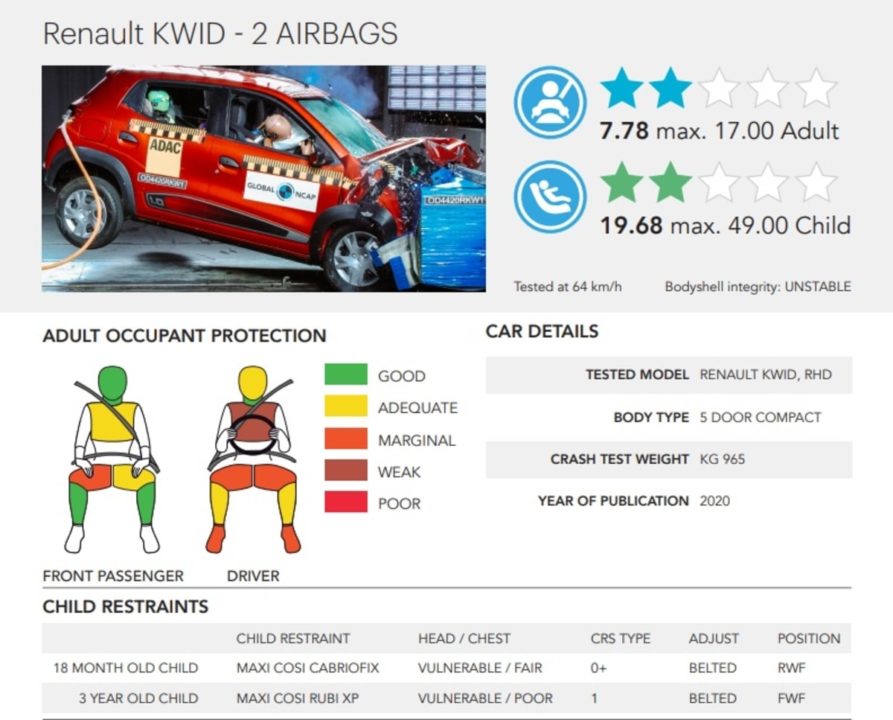
Renault Kwid scored only two stars in Global NCAP crash tests for Africa and the structure was rated unstable
In the latest round of crash tests conducted by Global NCAP under the #SaferCarsForAfrica campaign, the Renault Kwid showed encouraging signs of improvement compared to the test results with zero stars back in 2016 of the India-spec version and one star with standard airbag and seatbelt pre-tensioner. With structural improvements, the Brazil manufactured Kwid was tested by Latin NCAP and it achieved three stars.
In Africa, the facelifted Renault Kwid is sold with two airbags as standard and it received two stars for adult occupant and child occupant protection categories. Global NCAP evaluated the Kwid and put it through a number of tests to find that the protection offered to the head of the driver was adequate and good for the passengers.
While the necks showed good protection, the critical driver chest area showed weak protection. It was found to have an unstable body structure along with unstable footwell structure and pedal movement. The child occupant protection tests indicated poor performance as the head contacted the interior of the hatchback.
Additionally, the lack of three point seatbelts in all seating positions and the absence of ISOFIX anchorages did not help in Renault Kwid achieving more than two stars. In the adult occupant protection assessment, the Kwid gave marginal protection for driver’s knees as they came in contact with ‘dangerous structures’ behind the dashboard supported by tranfascia tube.
In contrary, the passenger knees showed adequate and marginal protection. According to Global NCAP, the child seat for the three-year-old was installed FWF using the adult seatbelt and was not able to prevent excessive forward movement during the impact below the 550 mm limit. Moreover, the protection was limited for the Q3 head and chest, as the CRS showed structural failure during the test.
With the tests conducted at 64 kmph, the CRS was installed with the adult seatbelt rearward facing offering limited protection. The made-in-India Renault Kwid was tested alongside the Steed 5 pickup truck from Great Wall and Haval H1 SUV. The former disappointed with zero stars while the latter managed only two stars as Global NCAP urged the importance of selling safer cars in Africa.

